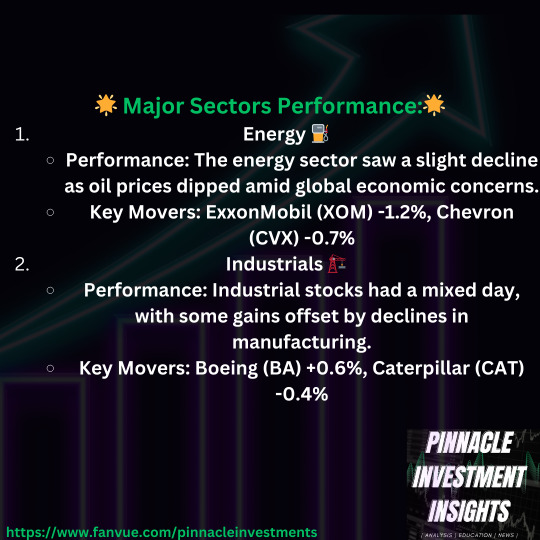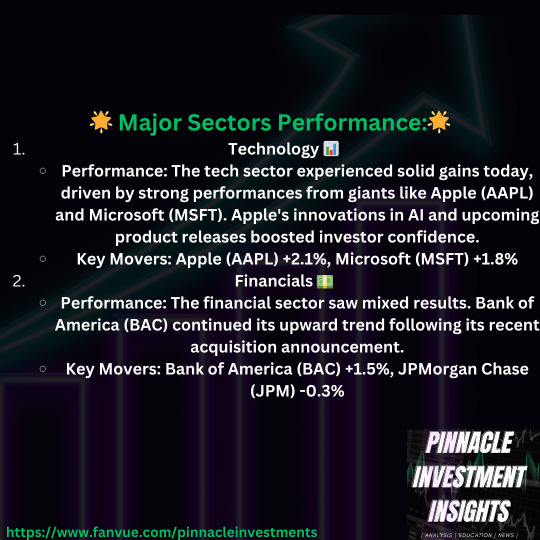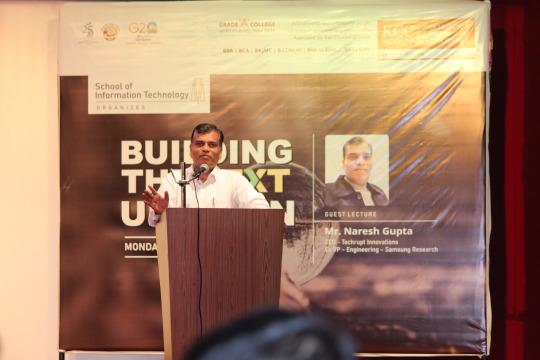#Global Startup Success
Explore tagged Tumblr posts
Text
Essentials of Scaling Your Startup Globally: Networking
Global entrepreneur networking is essential for scaling startups globally by building strategic partnerships, securing international funding, and accessing expert support. Entrepreneurs can expand their market presence through networking events, social media, and global entrepreneur networks. These connections help startups navigate challenges, recruit talent, and establish credibility in international markets.
#Global Business Strategies#Global Entrepreneur Network#Global Entrepreneur Networking#Global Startup Challenges#Global Startup Expansion#global startup funding#Global Startup Opportunities#Global Startup Success
0 notes
Text
Global Challenges, Local Actions: The Role of CSR in Community Development
In today’s rapidly changing world, businesses are increasingly recognizing the necessity of engaging in corporate social responsibility (CSR) as a means to address global challenges while simultaneously contributing to community development. This article explores how CSR initiatives, driven by local actions, can significantly impact societal welfare and environmental sustainability. By examining…
#Actions#best practices for brand management#Branding strategies for small businesses#building brand loyalty#business growth strategies#Challenges#Community#corporate social responsibility#creating a strong brand identity#CSR#customer relationship management#Development#digital marketing for startups#e-commerce tips for businesses#global#how to scale your business.#how to start a successful business#importance of social media for businesses#influencer marketing for brands#Local#Role#small business funding options#top business trends 2024
0 notes
Text
Dubai Freezone Company Registration Process

Starting your business in Dubai can feel like a big adventure. One of the most exciting opportunities is setting up a company in one of Dubai's many free zones. Why? Because free zones offer a bunch of perks like 100% foreign ownership, no taxes, and easy paperwork.
But how do you actually register a company in a Dubai Freezone? Let’s break it down in simple steps:
Step 1: Choose the Right Freezone
Dubai has over 30 free zones, each tailored for specific industries. For example, Dubai Internet City is perfect for tech startups, while Jebel Ali Freezone is great for logistics. Do a little homework and pick the one that suits your business best.
Step 2: Decide Your Business Activity
Make sure you clearly define what your business will do. Different free zones have specific rules and allowed activities, so this step is super important.
Step 3: Submit Your Application
Once you’ve decided on the free zone and your business activity, submit an application. You’ll typically need to provide your passport copy, a business plan, and other basic documents.
Step 4: Get Your License
After your application is reviewed, you’ll receive a business license. This license is your green light to officially start operating in the free zone.
Step 5: Set Up a Physical or Virtual Office
Most free zones require you to have a physical or virtual office space. The good news? Many of them offer affordable packages.
Step 6: Open a Bank Account
Finally, open a corporate bank account in Dubai to manage your finances smoothly. With your license and other documents in hand, this step is a breeze.
Why Choose Dubai Freezones?
Dubai free zones are all about making life easier for entrepreneurs. From hassle-free registration to amazing tax benefits, they’re designed to help businesses thrive.
Looking for expert help? Check out this Dubai Freezone Business Setup service for detailed guidance!
#dubai business#company formation dubai#freezone company formation#business setup in dubai#entrepreneurship#company registration#business in dubai#startup success#business ideas#global business#dubai life#business growth
1 note
·
View note
Text
PrimeWave Venture: Shaping Tomorrow’s Innovations Today
In the fast-evolving world of business and technology, PrimeWave Venture emerges as a dynamic force, reshaping industries and driving progress. As a trusted partner for entrepreneurs, investors, and enterprises, PrimeWave bridges the gap between visionary ideas and groundbreaking execution. This article dives deep into the ethos, operations, and impact of PrimeWave Venture, revealing why it’s the…
#business#Business Growth#Entrepreneur Support#entrepreneurship#Future-Ready Ventures#Global Investments#Innovation Solutions#PrimeWave Venture#startup#Startup Success#startups#Strategic Consulting#Sustainable Business#Tech-Driven Solutions#venture-capital
0 notes
Text
Boost Your Business: Key Networking Events in London
In the dynamic world of entrepreneurship, networking is not just an activity—it's a necessity. For entrepreneurs and professionals in London, connecting with the right people can be the key to unlocking new opportunities, solving challenges, and driving business growth. London’s status as a global hub for startups means it hosts a variety of networking events tailored to the needs of ambitious entrepreneurs. Whether you're looking to join the world's largest startup community or gain startup community insights, these key networking events in London can help you boost your business.
1. Connecting with the Business Startup Community
London’s business startup community is vast and diverse, encompassing a range of industries and specializations. Attending networking events that cater to this community provides an invaluable opportunity to meet like-minded entrepreneurs, potential partners, and investors. These events often offer a platform to share ideas, collaborate on projects, and learn from others' experiences.
Silicon Drinkabout is one such event that has become a staple for London's startup community. This casual, weekly meet-up brings together entrepreneurs, developers, and investors in a relaxed environment, fostering connections that can lead to collaborations and partnerships. Whether you’re just starting out or looking to scale, Silicon Drinkabout is a great way to become integrated into London’s vibrant startup ecosystem.
2. Tapping into the World’s Largest Startup Community
London is home to one of the world's largest startup communities, and networking within this ecosystem can open doors to international markets and opportunities. Events like London Tech Week bring together thousands of tech enthusiasts, entrepreneurs, and thought leaders from around the globe. This event is not only a showcase of the latest innovations but also a meeting ground for some of the most influential figures in the startup world.
By participating in such large-scale events, you can position your business within the global startup landscape, gaining exposure and potentially forming partnerships that extend beyond the UK. The networking opportunities at London Tech Week are unparalleled, with countless chances to meet investors, mentors, and potential clients.
3. Gaining Startup Community Insights
Understanding the trends, challenges, and opportunities within the startup community is crucial for any entrepreneur. Networking events focused on startup community insights provide a platform to learn from the successes and failures of others, helping you to navigate your entrepreneurial journey more effectively.
Startup Grind London is an excellent event for gaining these insights. Part of a global network that educates and connects entrepreneurs, Startup Grind features fireside chats, panel discussions, and workshops with successful founders and industry experts. These sessions delve deep into the practical aspects of running a startup, from securing funding to scaling your business.
4. Exploring Innovation Hub Trends
Innovation is at the heart of every successful startup, and staying ahead of the curve requires an understanding of the latest innovation hub trends. London’s networking events often focus on emerging technologies and business models, providing a glimpse into the future of various industries.
Digital Catapult’s Open Innovation Labs are events designed to explore and develop cutting-edge technologies. These labs bring together startups, corporates, and academics to collaborate on projects that could define the next big trend in tech. Attending these events can give you a competitive edge by allowing you to see where the market is headed and how you can position your business to capitalize on these trends.
5. Learning from Entrepreneurial Success Stories
One of the most inspiring aspects of networking is hearing entrepreneurial success stories. London’s startup events are filled with founders who have turned their ideas into thriving businesses. These stories provide valuable lessons on what it takes to succeed in the competitive startup landscape.
Founders Forum is a premier networking event that gathers some of the most successful entrepreneurs, investors, and business leaders. This invite-only event offers an exclusive platform for sharing stories, discussing challenges, and exploring new opportunities. While it’s a bit more difficult to gain access, the insights and connections made here can be transformative for your business.
6. Addressing Startup Community Challenges
Every entrepreneur faces challenges, from securing funding to scaling operations. London’s networking events provide a platform to discuss these startup community challenges and find solutions through collaboration and shared experiences.
TechHub’s Monthly Meetups focus on addressing these challenges, offering a supportive environment where entrepreneurs can share their struggles and successes. These events often feature guest speakers who provide advice on overcoming common hurdles in the startup world, making them a valuable resource for anyone looking to grow their business.
7. Navigating Unique Startup Ecosystems
London is home to several unique startup ecosystems, each with its own strengths and opportunities. Understanding these ecosystems is key to finding the right market fit for your business. Networking events that focus on specific industries or technologies can help you navigate these ecosystems more effectively.
PropTech Connect is an event that focuses on the intersection of property and technology, one of London’s most exciting startup ecosystems. This event brings together real estate professionals, tech innovators, and investors to explore the future of property technology. If your startup operates within this niche, attending PropTech Connect could provide you with the connections and insights needed to thrive in this ecosystem.
8. Spotting Investment Opportunities
For many startups, securing investment is a crucial step towards growth. London’s networking events often attract investors looking for the next big thing, making them a prime venue for pitching your ideas and securing funding. Understanding where to find these investment opportunities can make all the difference in your startup’s success.
Angel Investment Network’s Pitch Events are a key opportunity for early-stage startups to connect with investors. These events offer a platform for startups to present their ideas to a select group of angel investors who are actively looking to fund innovative projects. By attending these events, you increase your chances of finding the right investor to help take your business to the next level.
9. Mastering Networking in Startups
Effective networking in startups requires more than just showing up—it’s about building meaningful relationships that can lead to long-term partnerships and opportunities. London’s startup events offer the perfect setting to hone your networking skills and expand your professional network.
WeWork Labs frequently hosts networking events that are specifically designed for startups. These events are geared towards helping entrepreneurs connect with mentors, advisors, and peers who can provide support and guidance. Whether you’re looking for advice, partnerships, or simply a sounding board for your ideas, WeWork Labs offers a collaborative environment where you can grow your network and your business.
Conclusion: Turn Networking into Growth
London’s startup scene is bustling with opportunities, and networking is the key to unlocking them. By attending these key events, you can immerse yourself in the business startup community, gain valuable startup community insights, and connect with investors who can help you scale. Whether you’re interested in the latest innovation hub trends or looking to overcome startup community challenges, London’s networking events provide the platform to turn contacts into contracts and ideas into successful ventures. Don’t miss out on the chance to boost your business by connecting with the people who can help you grow.
#Business Startup Community#World's Largest Startup Community#Global Startup Network#Startup Community Insights#Innovation Hub Trends#Entrepreneurial Success Stories#Startup Community Challenges#Unique Startup Ecosystems#Investment Opportunities#Networking in Startups
0 notes
Text
The Success Story of Calendly: Empowering Seamless Scheduling for All
In the fast-paced world of modern business and personal schedules, efficient time management is crucial. Calendly, a revolutionary scheduling tool, has emerged as a beacon of simplicity and functionality in this arena. Founded by Tope Awotona, Calendly has not only transformed the way individuals and organizations manage their time but also stands as a testament to entrepreneurial vision and…
#Calendly founder#Collision#Collision 2022 keynote#diverse leadership#entrepreneur success story#global connectivity#innovative scheduling app#productivity software#scheduling tool#tech startup#time management solution#Tope Awotona
0 notes
Text

Let us introduce Trufe to you all! At Trufe, we specialize in driving innovation for your company to help you achieve all your technological goals. Our commitment is to build lasting customer relationships by providing tailored solutions across various industries. With a dynamic team of young leaders, we are dedicated to guiding you to success. Our global presence spans India, the USA, Africa, the Middle East, and more. Connect with us at [email protected] or Visit us at www.trufe.com to transform your vision into reality!
#innovation#technology#customer relationship management#trufe success you#global presence#saas#startup#information technology#programming#automation#ai#machine learning#cloud#blockchain
1 note
·
View note
Text




May 21, 2024 Stock Market Recap
Check out our Fanvue for expanded coverage of stock market news, stock analysis and grading, education, and MORE!
Copy and paste or click the link below! 🔗https://www.fanvue.com/pinnacleinvestments
Stay tuned for more updates and insights! 🌐
#investing#teaching#teacher#success#stock market#startup#stock news#investing news#news#global news#technology news#NASDAQ#Dow Jones#sp500#s&p 500#forex#forex trading#forex market#forex education#stock market education#swing trading#penny stocks#daytrading
0 notes
Text
The Best News of Last Year - 2023 Edition
Welcome to our special edition newsletter recapping the best news from the past year. I've picked one highlight from each month to give you a snapshot of 2023. No frills, just straightforward news that mattered. Let's relive the good stuff that made our year shine.
January - London: Girl with incurable cancer recovers after pioneering treatment

A girl’s incurable cancer has been cleared from her body after what scientists have described as the most sophisticated cell engineering to date.
2. February - Utah legislature unanimously passes ban on LGBTQ conversion therapy

The Utah State Legislature has unanimously approved a bill that enshrines into law a ban on LGBTQ conversion therapy.
3. March - First vaccine for honeybees could save billions

The United States Department of Agriculture (USDA) has approved the world’s first-ever vaccine intended to address the global decline of honeybees. It will help protect honeybees from American foulbrood, a contagious bacterial disease which can destroy entire colonies.
4. April - Fungi discovered that can eat plastic in just 140 days

Australian scientists have successfully used backyard mould to break down one of the world's most stubborn plastics — a discovery they hope could ease the burden of the global recycling crisis within years.
5. May - Ocean Cleanup removes 200,000th kilogram of plastic from the Pacific Ocean

The Dutch offshore restoration project, Ocean Cleanup, says it has reached a milestone. The organization's plastic catching efforts have now fished more than 200,000 kilograms of plastic out of the Pacific Ocean, Ocean Cleanup said on Twitter.
6. June - U.S. judge blocks Florida ban on care for trans minors in narrow ruling, says ‘gender identity is real’

A federal judge temporarily blocked portions of a new Florida law that bans transgender minors from receiving puberty blockers, ruling Tuesday that the state has no rational basis for denying patients treatment.
7. July - World’s largest Phosphate deposit discovered in Norway

A massive underground deposit of high-grade phosphate rock in Norway, pitched as the world’s largest, is big enough to satisfy world demand for fertilisers, solar panels and electric car batteries over the next 50 years, according to the company exploiting the resource.
8. August - Successful room temperature ambient-pressure magnetic levitation of LK-99

If the claim by Sukbae Lee and Ji-Hoon Kim of South Korea’s Quantum Energy Research Centre holds up, the material could usher in all sorts of technological marvels, such as levitating vehicles and perfectly efficient electrical grids.
9. September - World’s 1st drug to regrow teeth enters clinical trials

The ability to regrow your own teeth could be just around the corner. A team of scientists, led by a Japanese pharmaceutical startup, are getting set to start human trials on a new drug that has successfully grown new teeth in animal test subjects.
10. October - Nobel Prize goes to scientists behind mRNA Covid vaccines

The Nobel Prize in Physiology or Medicine has been awarded to a pair of scientists who developed the technology that led to the mRNA Covid vaccines. Professors Katalin Kariko and Drew Weissman will share the prize.
11. November - No cases of cancer caused by HPV in Norwegian 25-year olds, the first cohort to be mass vaccinated for HPV.
Last year there were zero cases of cervical cancer in the group that was vaccinated in 2009 against the HPV virus, which can cause the cancer in women.
12. December - President Biden announces he’s pardoning all convictions of federal marijuana possession

President Joe Biden announced Friday he's issuing a federal pardon to every American who has used marijuana in the past, including those who were never arrested or prosecuted.
------
And there you have it – a year's worth of uplifting news! I hope these positive stories brought a bit of joy to your inbox. As I wrap up this special edition, I want to thank all my supporters!
Buy me a coffee ❤️
Merry Christmas and Happy New Year!
6K notes
·
View notes
Video
Startup Success Stories Telugu | Arogyamithra Ceo Dr. Naresh Bari Interv...
#youtube#Startup Success Stories Telugu | Arogyamithra Ceo Dr. Naresh Bari Interview | ITTV Global Media#success stories#startup
0 notes
Text
21by72: The Must-Attend Startup Event in Gujarat

Dreaming of blasting off with your next big idea? Look no further than 21by72, India's biggest startup summit (mark your calendars for June 15-16, 2024, in Surat!). This isn't your average conference - it's a mission control for launching your dreams into the Global Startup Summit stratosphere.
Network with 125+ global startups at this major Startup Expo Surat. Forge connections that could propel your venture forward and gain valuable exposure for your groundbreaking concept. (Search online for stall booking information if interested in participating).
Fuel your rocket ship! Sharpen your strategy and secure funding to propel your startup to new heights. Pitch your idea to a panel of rockstar investors at this Startup Summit 2024 India. 21by72 isn't just a summit, it's a Growth Summit Surat designed to equip you with the knowledge and connections you need to thrive in the Indian startup scene.
Don't miss this chance to:
Showcase your disruptive idea! Gain valuable validation and exposure at this major Startup Expo Surat.
Learn from the best! Network with experienced founders and investors who've been there, done that. This makes 21by72 a valuable Startup event India.
Fuel your rocket ship! Secure funding to propel your startup to new heights at this Global Startup Summit.
This is your chance to join the movement! Register for 21by72 and turn your vision into a reality. Let's make India a global innovation hub, together!
#success#startup#investing#founder#entrepreneur#economy#branding#marketing#finance#Global Startup Summit#Startup expo surat#Stall Booking for startup#Biggest Startup Events in India#Startup Meeting Surat#Growth Summit Surat#Startup Event in Gujarat#Startup Event India
0 notes
Text
Empowering Women, Empowering Economies: How Female Entrepreneurs are Driving Growth and Change
Women have always played a crucial role in shaping societies and economies around the world. However, their potential as entrepreneurs has often been underestimated and underutilized. Empowering women to start and grow their own businesses not only benefits them individually but also has a significant impact on the overall economy. In this article, we will delve into the ways in which female…
#challenges faced by women entrepreneurs#empowering women in leadership roles#female leaders in business#female success stories in various sectors#global women entrepreneurship trends#how women are reshaping industries#impact of women-led startups#inspiring women in tech#notable women in finance#Stories of successful women entrepreneurs#successful female founders#tips for women starting a business#top female CEOs#women breaking barriers in business#women entrepreneurs making a difference.
0 notes
Text
Good News From Israel
In the 5th Jan 25 edition of Israel’s good news, the highlights include:
Numerous technical advances in Israeli rehabilitation therapy during the war.
Two major Israeli breakthroughs in cancer treatment.
Israel spends millions on technical and Hebrew skills for its Arab citizens.
Israeli eye doctors restored the sight of hundreds of Ethiopians.
Israel and the US team-up on cyber training and cleantech projects.
Low cost airline Wizz Air, and 5 others, resume services to Israel.
Israeli actress Gal Gadot had brain surgery when 8 months’ pregnant.
Israeli archaeologists unearthed ancient artifacts linked to Chanukah.
Read More: Good News From Israel

As we begin 2025, Israelis continue onwards with life-saving and life-changing innovations and activities to benefit its citizens and all of humanity.
Because of the war, huge advances have been made in Israeli technology to rehabilitate the wounded. Recent medical breakthroughs and research, as seen in this newsletter, will benefit cancer sufferers, diabetics, trauma patients and many more globally. Scientific successes have surged ahead in the areas of agriculture technology, cleantech, cybersecurity, renewable energy, water technology, vegan foods, and of course defense.
Israel's population grew past the magic 10 million mark and its 2.1 million Arabs are to receive extensive government financial help to establish tech startups and develop Hebrew language skills. Meanwhile. there has been a big rush to enlist in the IDF from women, middle-age men and religious Jews.
Finally, archaeologists constantly reveal more and more historic Jewish links to the Modern State.
The photo has very little to do with the theme "onwards", except that every year Israeli Chanukah donuts seem to get even more colorful and delicious!
#Abraham Accords#Arabs#cancer#Chanukah#Ethiopia#Floyd Mayweather#Gal Gadot#Gaza#good news#IDF#Israel#Jerusalem#Jewish#rehabilitation#Schizophrenia#Ten Commandments#vegan
62 notes
·
View notes
Text
A sunflower inspired Yevgen Erik to reinvent solar panels in his home country, Ukraine.
After realizing that the solar panels on his roof failed to cover his air conditioning costs during summer, he had an idea to create solar-powered blinds that would track the movement of the sun, like a sunflower, and provide shade to his home.
“We are losing so much energy through windows,” Erik told the Kyiv Independent from Spain, where he is currently based.
“I saw how we need to take something from nature and bring it to our homes.”

Erik took the idea to the IoT Hub, a tech startup accelerator in Kyiv, where he formed a team and launched SolarGaps in 2016. The Ukrainian-based company has since received $1.5 million in investments and $1 million in grants funded by the European Commission.
With thousands of SolarGap blinds installed globally, Erik sees a bright future for the company as the world rapidly turns towards renewable energy. The solar market is valued at $55 billion and he sees a serviceable available market of $2.5 billion for SolarGaps.

The blinds are simple to use and look much like normal venetian blinds, but made out of metal. The solar panels, like the ones installed on roofs, are fashioned into slats that automatically track the sun.
#solarpunk#solarpunk business#solarpunk business models#solar punk#solar power#ukraine#product design
31 notes
·
View notes
Text
Investing in the Future: Opportunities in the World's Largest Startup Community
The world's largest startup community offers unparalleled opportunities for investors seeking to support innovation and achieve substantial returns. This blog explores the investment landscape within this vibrant ecosystem, highlighting the key factors that make it an attractive prospect for potential investors.
1. Understanding the Business Startup Community
The business startup community within the world's largest startup network is a diverse and dynamic environment that encompasses a wide range of industries and regions. This community is driven by innovation, collaboration, and a shared goal of economic growth.
Global Startup Network: The global startup network connects various ecosystems across the world, facilitating cross-border collaborations and market expansions. This interconnectedness is a key factor in driving global innovation and providing investment opportunities.
2. Gaining Valuable Startup Community Insights
Investors can benefit from startup community insights that provide a deep understanding of market trends, consumer behaviors, and technological advancements. These insights are crucial for identifying promising startups and making informed investment decisions.
Innovation Hub Trends: Innovation hubs are central to the startup community, acting as breeding grounds for new ideas and technologies. Keeping an eye on trends within these hubs can help investors identify the next big thing.
3. Learning from Entrepreneurial Success Stories
The world's largest startup community is filled with entrepreneurial success stories that highlight the potential for significant returns on investment. These stories provide valuable lessons on what makes startups successful and how they overcome challenges.
Unique Startup Ecosystems: Each startup ecosystem has its own unique characteristics and strengths. For example, Silicon Valley is renowned for its tech startups and access to venture capital, while Berlin is known for its creative industries and vibrant culture.
4. Navigating Startup Community Challenges
Investing in startups comes with its own set of startup community challenges, such as regulatory hurdles, market competition, and the need for robust business models. Understanding these challenges is essential for mitigating risks and maximizing returns.
Networking in Startups: Building strong networks within the startup community can provide investors with valuable connections and insights. Networking events, incubators, and accelerators offer platforms for engaging with promising startups and other investors.
5. Identifying Investment Opportunities
The world's largest startup community offers a plethora of investment opportunities across various industries and regions. Identifying the right opportunities involves thorough research, due diligence, and strategic planning.
Pitching and Funding: Startups seeking investment need to present compelling pitches that clearly outline their value proposition, market potential, and growth strategies. Investors should look for startups with strong business plans and scalable models.
6. Leveraging the Global Startup Network
The global startup network provides a platform for investors to explore opportunities beyond their local markets. By leveraging this network, investors can access a wider pool of innovative startups and diversify their investment portfolios.
Conclusion
Investing in the world's largest startup community presents a unique opportunity to support groundbreaking innovations and achieve substantial returns. By understanding the dynamics of the business startup community, gaining valuable insights, learning from success stories, and navigating challenges, investors can make informed decisions and identify promising opportunities.
The interconnected nature of the global startup network, along with the unique characteristics of various startup ecosystems, offers a wealth of potential for those willing to invest in the future of innovation. By building strong networks and staying informed about industry trends, investors can position themselves to capitalize on the growth and success of the world's most vibrant startup community.
#Business Startup Community#World's Largest Startup Community#Global Startup Network#Startup Community Insights#Innovation Hub Trends#Entrepreneurial Success Stories#Startup Community Challenges#Unique Startup Ecosystems#Investment Opportunities#Networking in Startups
0 notes
Text
Guest lecture on "Building the Next Unicorn"
Mr. Naresh Gupta, CTO, Techrupt Innovations, delivered an inspiring guest lecture on "Building the Next Unicorn" to BCA, BBA, and B. Com students at KCC Institute of Legal and Higher Education . Mr. Gupta, an accomplished entrepreneur, shared essential insights for startup success, emphasizing the importance of innovative ideas, flawless execution, effective team building, customer-centricity, funding strategies, and global scaling. He stressed the need for resilience and a growth mindset. The lecture provided valuable guidance for aspiring entrepreneurs and left students with a renewed sense of determination to contribute to the world of startups and innovation.

guest lecture on "Building the Next Unicorn"
56 notes
·
View notes